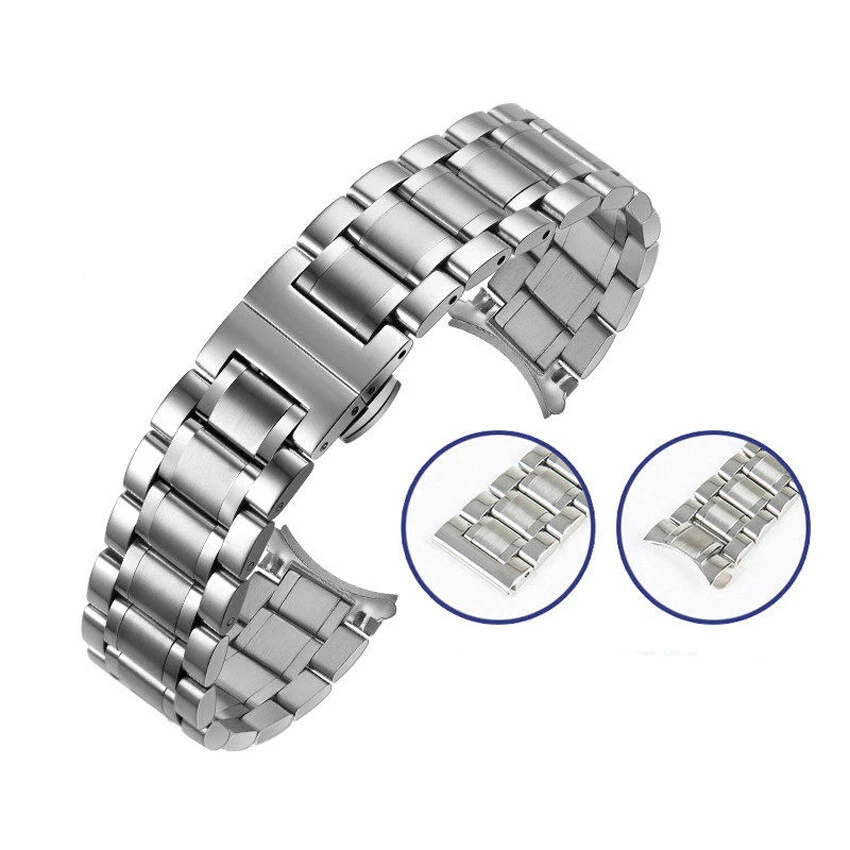The Ultimate Guide to Watch Bands for Sensitive Skin
Do you love watches but struggle with skin irritation? You're not alone. Many watch enthusiasts face this challenge, but don't worry – we've got your wrist covered! Let's dive into the world of comfortable, stylish watch bands that won't make your skin angry.
Why Your Skin Deserves the Best
When it comes to watch bands, not all materials are created equal. Your skin is unique, and it deserves a band that treats it right. Let's explore some options that'll keep your wrist happy and your style on point.
Top 5 Watch Band Materials That Love Your Skin Back
1. Leather Watch Bands: Classic Comfort
Leather watch bands are like a fine wine – they get better with age.
Why you'll love them:
- They breathe (unlike your ex)
- Get softer over time (like your favourite jeans)
- Come in more colours than a rainbow
Watch out for:
- They're not fans of water or sweat
- Need a bit of TLC to stay looking sharp
Perfect for: Making a statement at work or impressing on date night
Pro tip: Go for vegetable-tanned leather if you're extra sensitive
2. Silicone Watch Bands: The Workout Buddy
Silicone bands are like that friend who's always up for any adventure.
Why they're awesome:
- Laugh in the face of water and sweat
- Cleaner than your kitchen after a deep clean
- Flex and stretch like a yoga instructor
The downside:
- Might look a bit casual for your cousin's wedding
Ideal for: Gym junkies and beach lovers
3. Nylon Watch Bands: Light as a Feather
Nylon bands (also knows as NATO straps) are the free spirits of the watch world.
What's great:
- Lighter than air (almost)
- Tougher than they look
- More pattern options than a fabric store
The catch:
- Can get a bit smelly if you forget to wash them
Perfect for: Weekend warriors and outdoor enthusiasts
4. Stainless Steel Watch Bands: The Tough Guy
Stainless steel bands are like the dependable friend who's always got your back.
Why you'll dig them:
- Built to last longer than your favourite TV series
- Clean up nicer than a teenager before a first date
- Look good at work and play
Keep in mind:
- Might be heavier than your gym weights
- Can be a bit rough on sensitive skin
Pro tip: Look for 316L stainless steel – it's the good stuff
5. Titanium Watch Bands: The Lightweight Champion
Titanium is like that overachiever friend who's good at everything.
The good stuff:
- Light as a feather, strong as an ox
- More hypoallergenic than a sneeze-free cat
- Perfect for sensitive skin types
The not-so-good:
- Might cost more than your monthly coffee budget
- Can scratch if you're not careful
Great for: Those who want the best of the best
Watch Band Materials to Ghost
- Anything with nickel (unless you like rashes)
- Cheap rubber (your skin deserves better)
- Mystery metal alloys (who knows what's in there?)
Keeping Your Band (and Skin) in Top Shape
- Give your band a wipe-down daily (it's like brushing your teeth, but for your watch)
- Let your wrist breathe occasionally (your skin needs a holiday too)
- Keep things dry (moisture is the enemy of happy skin)
- Mix it up with different bands (variety is the spice of life)
- Find your Goldilocks fit – not too tight, not too loose
Your Burning Questions, Answered!
Q: Can I rock a metal band with sensitive skin?
A: Absolutely! Just stick to the good stuff like high-grade stainless steel or titanium.
Q: How often should I clean my watch band?
A: Daily is best, especially if you're prone to the odd rash.
Q: Are leather watch bands good for sensitive skin?
A: They can be! Leather bands are generally skin-friendly, especially if they're vegetable-tanned. But everyone's skin is different, so listen to yours.
Finding Your Perfect Match
Choosing the right watch band is like finding the perfect pair of shoes – it's all about what works for you. Whether you're after a classic leather look, a sporty silicone number, or a sleek metal bracelet, there's a band out there that'll make your wrist (and your style) sing.
Remember, quality matters, keeping things clean is key, and your skin knows best. With the right band, you'll be rocking your watch in comfort and style.
So, what's your go-to watch band for happy skin? Drop a comment and share your secrets!
Posted on 15 May 2023 by







